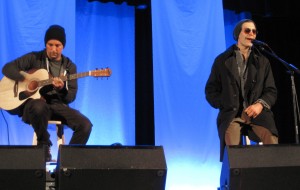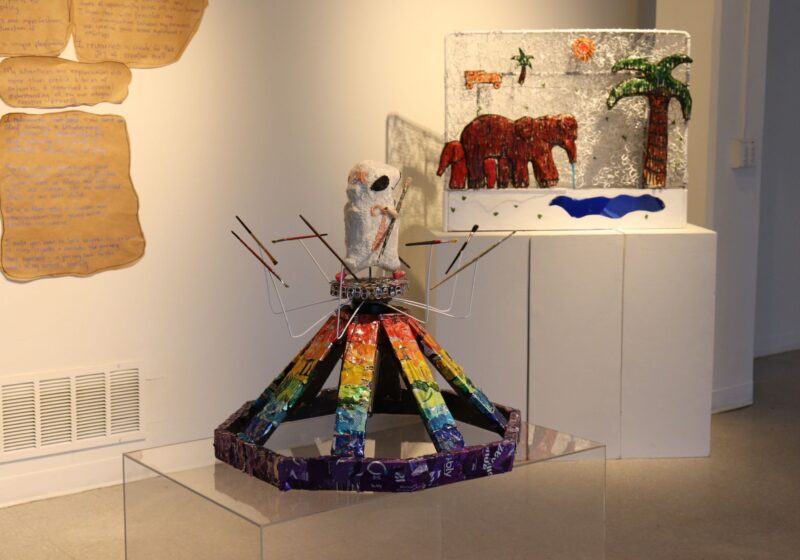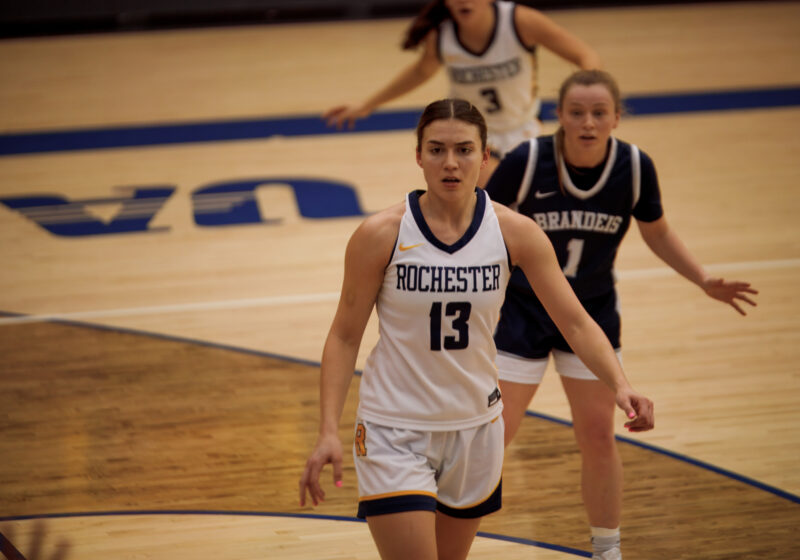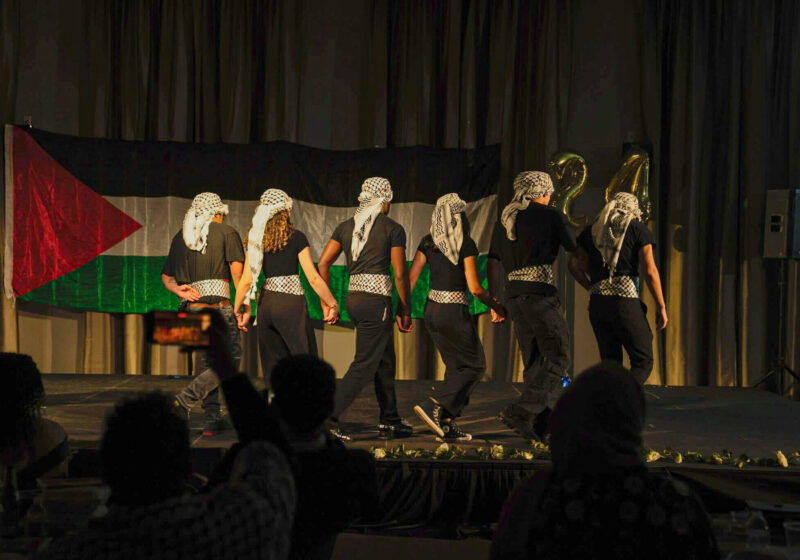As humans have socially evolved, it has become harder for the individual to truly identify him or herself as unique. The same can be said of music, for in the last two centuries it has evolved to the point where very few modern musicians stand out as truly distinctive performers. To be a great vocalist, a great performer, a great instrumentalist or a great songwriter isn’t enough anymore; you have to either be extraordinary in at least one of those categories or exceptional at them all.
Reggae and rock artist Matisyahu’s skill set is among the latter. Though it may seem to be a hyperbole, some Matisyahu fans believe him to be one of the most underrated musicians of our lifetime and, after his performance in Strong Auditorium on Thursday, Nov. 1 to a crowd of roughly 150 people, it is definitely harder to disagree with these arguments.
Though officially listed as a speaker by Campus Activities Board (CAB), Matisyahu spent a majority of his time on stage performing seven songs from across the spectrum of his career. Unlike his recorded albums, which often contain autotune, heavy instrumentals and fast-paced songs, the concert was done acoustically, with only guitarist David Holmes accompanying Matisyahu on stage.
Their first song was “Crossroads,” one of Matisyahu’s most popular from his new album, “Spark Seeker.” The song, beginning with his Hazzan style of chanted prayer, deviated quickly from the original version and became slower, more elegant and sung with greater emotion than the source material. It seemed that many in the audience unfamiliar with Matisyahu were quickly awed by his mesmerizing vocals, which ended with a three-minute beatboxing session that perfectly accompanied Holmes’ guitar.
Matisyahu’s next three songs — “Obstacles,” “Live Like a Warrior” and “Thunder” — were more of the same: a beautiful montage of a talented musician, singing to his audience in a reggae-based style interspersed with impressive vocal percussion and thoughtful lyrics. Each seemed to have a life lesson or a proverb in every line — a memorable one from “Obstacles” stated “This life can’t be bought nor sold, just play your cards and fold” — and it was rare to see anyone in the audience distracted with anything besides the light show slowly changing to depict the ambiance of his music. By the end of the powerful, poetic “Thunder,” Matisyahu seemed in a trance as he repeatedly chanted “Don’t forget me now…,” a sentiment which was answered by the loudest applause thus far in the show.
The best part, however, was yet to come. The highlight of his show was a 15-minute mashup featuring his most recent hit “Sunshine” and one of the first songs he ever recorded back in 2004, “Aish Tamid.” Within those 15 minutes, he managed to highlight every trait, every facet of performance he has developed over his career into a sonata of incomprehensible beauty. Though the direction of his performance seemed aimless at times, his Hazzan chanting and lengthy vocal percussion transitions intertwined with Holmes’ guitar and a background synthetic orchestra to create a performance that few modern musicians have the artistic creativity to match.
Matisyahu’s final two songs were a return to the roots of his success. “King Without a Crown” was the first to regularly air on American radio stations in the mid-2000s, featuring the quintessential reggae-rap style that became his trademark. As well as showcasing his ability to turn what was originally a rap into a slower, more thoughtful ballad, the song was able to highlight the influence of his Jewish heritage, references to the Torah, God and the Jewish belief in the coming of the Messiah.
Following this performance was his final song, “One Day,” which catapulted him to international prominence in 2009. Matisyahu was able to take this anthem on peace, understanding and unity and — as he had done previously it more emotional, more meaningful and more creative than any recording can do justice. Additional themes taken from Bob Marley’s “No Woman, No Cry” only bolstered his message and performance further, providing a perfect ending for his remarkable performance.
What made his showing in Strong memorable was not only the songs, but the way he was able to captivate the audience on a personal level with both his music and the thoughtful insight he gave following his performance.
After a short intermission, Matisyahu came back on stage to hold a Q&A with the audience. It was surprising how easily he could engage the audience at multiple levels; his quick, often deadpan humor provided a solid counter to the many insightful monologues he gave. Among the many subjects he discussed included Judaism’s role in his life (Hasidism has played a role in his life since 1998), his musical influences (“Whatever has the ability to emotionally impact me at any given time”) and even the reason why he grew and then decided to shave his trademark facial hair (embracing the Hasidic movement and his later desire to better blend into society more).
Despite being only 33, Matisyahu displayed a wisdom not found in most people of any age, and some answers to less serious questions often came with responses that showed his deep understanding of human nature.
It’s hard not to take for granted the opportunities the University affords its students; for a student body that has less than 10,000 undergraduate and graduate students, we are often blessed with prominent speakers or famous musicians. The chance to see Matisyahu was a true privilege.
It’s rare to see a performance that is able to captivate an audience the way Matisyahu did for 90 minutes, and even rarer to hear an artist recreate his repertoire in such a way that makes it seem more powerful and creative than his original music. It is hard to forget a performance by Matisyahu, and this one surely won’t be.
Pascutoi is a member of the class of 2015.




